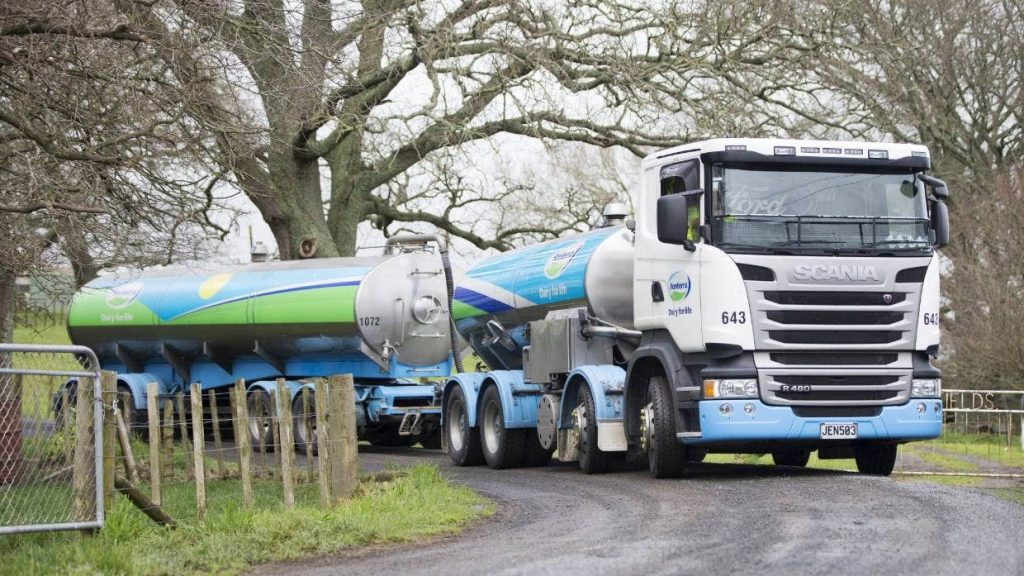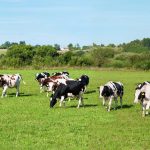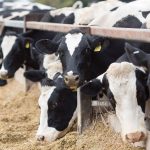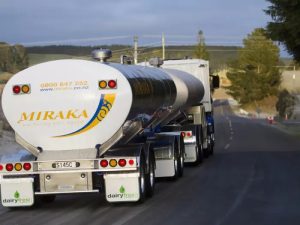
The co-operative on Friday lifted and narrowed its forecast for the 2021/22 season a second time, and is now expecting to pay its farmer suppliers between $8.40 and $9 per kilogram of milk solids. That’s up from its forecast in late October of between $7.90 and $8.90 per kgMS.
The midpoint of the range, which farmers are paid off, increased to $8.70 per kgMS from $8.40 per kgMS, and would be the highest level since Fonterra was formed in 2001. The co-operative paid farmers $7.54 per kgMS last season, and its previous record was $8.40 per kgMS in the 2013/14 season.
Global dairy prices have been supported this season by weaker milk production due to poor weather and higher feed costs. Fonterra’s New Zealand milk supply is down about 3 per cent on the same time last season but improving weather conditions means the co-operative has retained its expectation for milk collections to end the season down just 0.9 per cent at 1525 million kgMS.
The milk payment would be an important boost to New Zealand communities, said Fonterra chief executive Miles Hurrell.
“It’s the result of consistent strong demand for dairy at a time of constrained global supply,” he said.
“While we’ve seen demand soften slightly in China, global demand remains strong, and we think that will remain the case for the short to medium term.”
Fonterra is retaining a 60 cent range in its milk price forecast as it eyes uncertainty around new coronavirus variants which are potentially more resistant to vaccines, and whether economies can rebound from the pandemic and sustain their financial health, he said.
As the country’s biggest processor, Fonterra’s payment sets the benchmark for its competitors. However economists have warned that farmers are also facing higher costs, which is taking some shine off the forecast for a record payment.
While higher milk prices are beneficial for farmers, they can squeeze profit margins for milk processors like Fonterra unless they can sell their products at higher prices as well.
Fonterra said the higher milk price prompted it to reduce the top end of its annual earnings guidance to 25-35 cents per share from 25-40 cents per share.
“A higher forecast farmgate milk price at this level can put pressure on our margins and therefore our earnings, which is why we’ve reduced the top end of our earnings guidance,” Hurrell said.

Fonterra reported earnings before and interest and tax of $190 million in its first quarter to the end of October, down 19 per cent on the same period last year. On a normalised basis, earnings fell 24 per cent.
The co-operative attibuted the drop to tighter margins as it paid more to farmers for their milk, noting that whole milk powder prices were 30 per cent more expensive.
The gross margin weakened to 15.1 per cent from 18.1 per cent.
Sales volumes fell 4 per cent, due to lower milk production early in the season, but sales revenue increased 5 per cent to $4.4b as it raised prices to reflect higher input costs, the co-operative said.
“We’re seeing stable sales volumes in our foodservice channel, but a milk price at these high levels has squeezed margins,” Hurrell said.
“Our Chilean business continues to improve but tightening margins and weaker local currency in other markets have impacted our consumer channel overall. In our ingredients channel, we’re seeing margins in our longer-term pricing contracts return to more normal levels.”
Under Hurrell’s leadership, Fonterra has been selling assets after a period of global expansion failed to deliver the promised profits and left it saddled with too much debt.
The benefits of that showed through in a 2 per cent drop in operating expenses, and lower interest costs.
The co-operative has appointed investment bank JP Morgan to advise it on the planned divestment of its Chilean business, and investment banks UBS and Jarden to advise it on its ownership review of its Australian business, chief financial officer Marc Rivers said on a conference call.
Fonterra announced the ownership review of the businesses in September, as part of its strategy to focus on extracting more value from New Zealand milk. It has said it would consider a sharemarket listing for the Australian business where it would retain a significant stake.
“Dependent on the outcome of these processes, we intend to return around $1 billion of capital to our shareholders and unit holders by FY24,” Hurrell said on Friday.
























